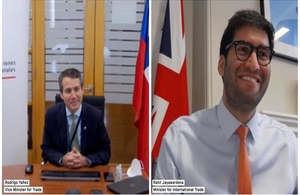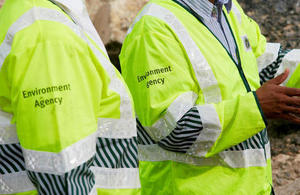UK statement to the TRIPS Council: Item 15
Thank you Chair.
The United Kingdom would like to thank Eswatini, Kenya, India and South Africa for introducing this agenda item and giving the Council an opportunity to discuss this very important issue.
The UK has long supported affordable and equitable access to essential medicines, including in low and middle-income countries. In this vein, intellectual property rights provide incentives to create new inventions, such as life-changing vaccines, treatments, and technologies.
The UK believes that a robust and fair intellectual property system is a key part of the innovation framework that allows economies to grow, while enabling society to benefit from knowledge and ideas.
In the current pandemic, we must acknowledge the IP system is not just made up of rights, but it also contains built-in mechanisms to support the sharing and dissemination of innovation and creativity. Flexibilities such as limitations and exceptions to IP rights have already proved invaluable to the development of digital solutions to support diagnostics and treatment. Text and data mining exceptions have been used in initial research into COVID-19, including for tracking and predicting its spread and are being used in the search for treatments.
Beyond hypotheticals, we have not identified clear ways in which IP has acted as a barrier to accessing vaccines, treatments, or technologies in the global response to COVID-19.
A waiver to the IP rights set out in the TRIPS Agreement is an extreme measure to address an unproven problem. The UK is of the view that pursuing the proposed path would be counterproductive and would undermine a regime that offers solutions to the issues at hand. Rather, we should consider how to meet the objectives of prevention, containment and treatment of COVID-19 as set out in the communication.
Multiple factors need to be considered to ensure equitable access for all to COVID-19 vaccines. These include increasing manufacturing and distribution capacity, measures to support or incentivise technology transfer, ensuring global supply chains remain open, and ensuring that effective platforms are utilised to voluntarily share IP and know how.
There are existing mechanisms that facilitate the sharing of IP through voluntary licensing of intellectual property. Organisations like the WHO are developing initiatives by learning lessons from these mechanisms. For example, expanding the mandate of an existing organisation such as the Medicines Patent Pool to address needs emerging from COVID-19.
The world urgently needs access for all to safe, effective, quality, and affordable vaccines, diagnostics, medicines, and other health technologies to enable an effective response to the COVID-19 pandemic, which is why a strong and robust multilateral IP system that can meet this challenge is vital.
The UK has played a leading role in financing the global effort and working with our international and national partners, to identify end-to-end solutions that ensure affordable access for all and ensuring no-one is left behind, including the poorest and most vulnerable.
For example, the UK has been leading the way in delivering a multilateral solution to COVID-19 vaccines, therapeutics, and diagnostics such as by committing £298 million to the COVAX Advance Market Commitment (AMC), with £250 million more available as “matched funding” if others commit $1 billion by December. We urge other Members to join the COVAX AMC in order to secure manufacturing capacity for 92 low and middle-income countries. This will support equitable access and will demonstrate that a multilateral response can rise to global challenges.
We are also committed to collaborating with public and private partners in the UK and internationally, including exploring voluntary arrangements and approaches such as non-exclusive voluntary licensing which promote affordable access for all while also providing incentives to create new inventions, to accelerate development and equitable access in all countries to affordable health technologies for responding to COVID-19.
We would like to encourage active dialogue between industry and governments to explore how best to work together to prevent, contain and treat COVID-19, including by using TRIPS-compliant licensing models in developing countries. While we welcome discussion of this issue and acknowledge the concerns of the co-sponsors as set out in their communication, we do not consider a waiver of the TRIPS Agreement to be an effective way to achieve the objectives outlined in the communication.
As we said in the informal consultation on standing TRIPS Council matters, we would be happy to participate in a workshop or other event that can support understanding how best the IP system can meet the objectives of Members in relation to COVID-19.
Thank you Chair.

